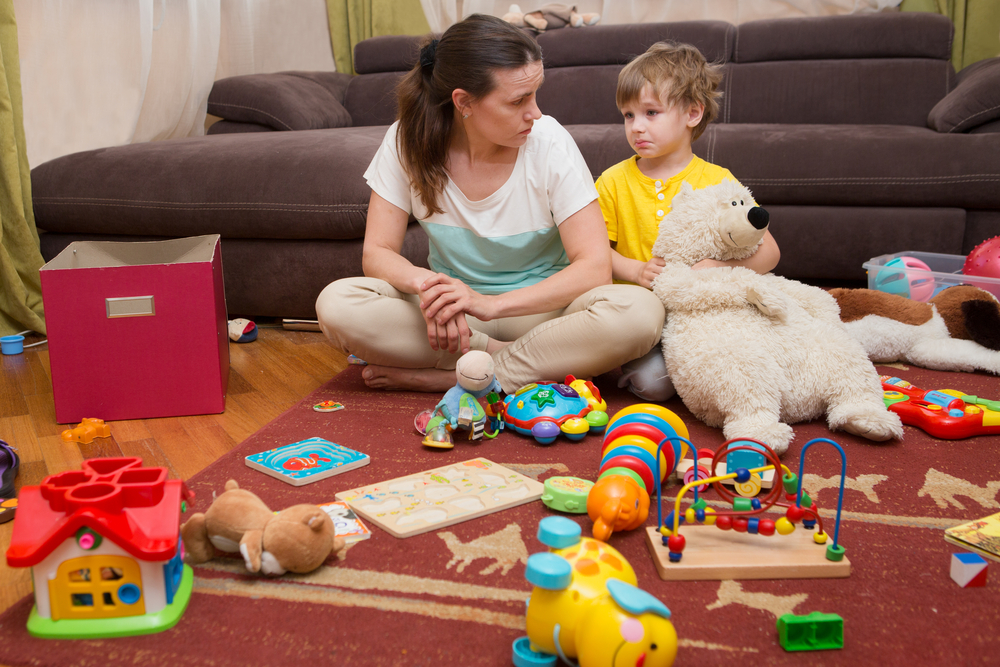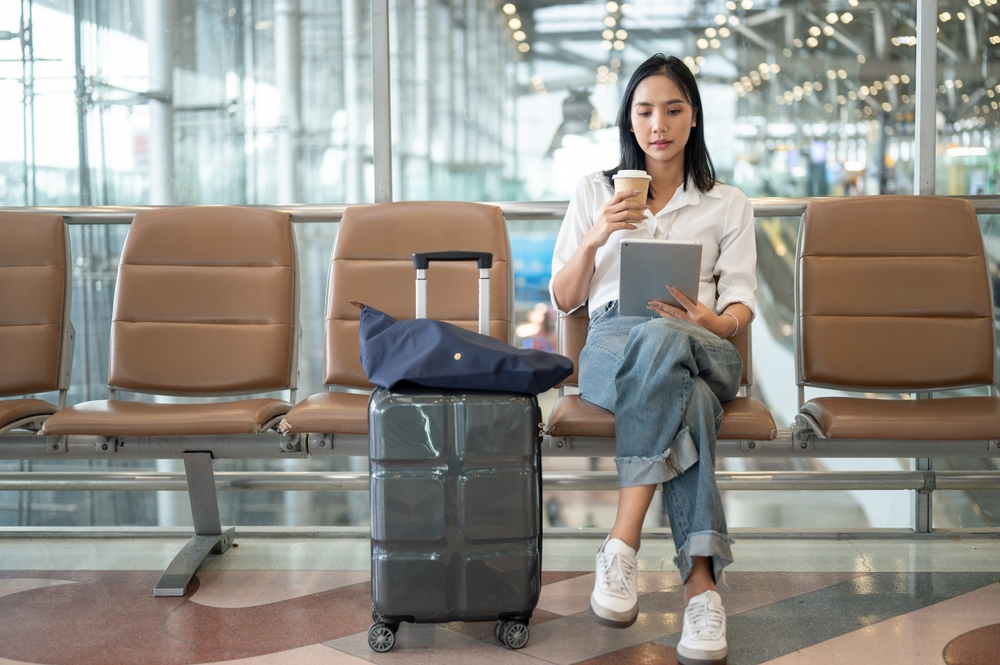The subtle ways frequent travel can chip away at your marriage in ways you never saw coming.

What if your spouse’s constant travel was quietly wrecking your marriage—and neither of you even noticed? It doesn’t take an affair or a dramatic falling out for distance to erode a relationship. The problem isn’t just the time apart; it’s the subtle ways travel changes routines, weakens emotional connections, and creates resentment that slowly builds over time. When one partner is always gone, the other is left handling everything alone, from daily responsibilities to major life moments.
Conversations become shorter, inside jokes fade, and before you know it, you’re living separate lives. Even the best marriages can suffer when physical distance turns into emotional detachment. It often happens so gradually that by the time the damage is obvious, the connection feels impossible to fix. If frequent travel is part of your relationship, these hidden issues could already be working against you without you realizing it.
1. Constant travel slowly turns your spouse into a stranger.

At first, the reunions feel exciting—catching up, sharing stories, and enjoying the time together. But over time, those gaps in daily life create a disconnect. The traveling spouse experiences things the other never sees, while the one at home builds routines that no longer include them. Conversations become surface-level, filled with logistics instead of real connection. Inside jokes start to fade, and before long, it feels like you’re talking to a guest rather than a partner.
Even small things—like favorite shows, weekend habits, or new friendships—become sources of distance. The longer this pattern continues, the harder it is to feel truly in sync. When one person’s world keeps expanding while the other feels stuck in place, resentment and loneliness creep in, as shared by members of the Berkeley Parents Network. If both partners don’t actively work to bridge the emotional gap, the relationship can slowly turn into two separate lives instead of one shared journey.
2. The one at home starts feeling like a single parent.

It’s one thing to handle the occasional solo parenting duty, but when travel is frequent, the burden can feel overwhelming. The parent left behind ends up managing everything—school drop-offs, doctor appointments, household breakdowns, and endless responsibilities—without help. At first, it’s manageable. But after months or years of doing it alone, exhaustion and resentment build. Even if the traveling spouse is working hard to provide for the family, it doesn’t erase the emotional weight of handling everything alone. Worse, in a research study conducted by Lorey A. Wheeler, et al. and published by the National Library of Medicine, the kids might start seeing one parent as the “real” caregiver and the other as an occasional visitor.
The imbalance can strain the marriage, especially if the traveling spouse assumes everything is fine just because their partner isn’t complaining. Over time, the dynamic shifts, and the person at home starts feeling more like a single parent than an equal partner, which can cause deep emotional and relational damage.
3. Special moments get missed, and it hurts more than you think.

Birthdays, anniversaries, school plays, big wins, hard days—when one spouse is always on the road, these moments slip by unnoticed. It’s easy to say, “We’ll celebrate later,” or “I’ll make it up to you,” but some things can’t be replaced. The person at home might put on a brave face, but deep down, every missed event is another reminder that their partner isn’t there. Over time, says Cindy Harper-Evans for the Los Angeles Times, those absences create an emotional gap that’s hard to bridge. The traveling spouse may feel guilty, but without real change, apologies start to feel empty.
Eventually, the one at home stops expecting them to show up, and that’s where the real damage happens. The moment a spouse is no longer part of the everyday highs and lows, they become an outsider in their own family. No grand gestures can replace the small, everyday moments that build a life together.
4. Travel breeds independence—sometimes too much.

Being apart naturally forces both partners to become more independent. The spouse at home gets used to making decisions alone, handling responsibilities without consulting anyone, and relying on themselves. Meanwhile, the traveler adapts to a lifestyle where they set their own schedule, eat where they want, and don’t have to compromise. At first, this independence might seem harmless, even beneficial. But over time, it creates a gap where both people stop needing each other as much.
The problem isn’t independence itself—it’s when that independence starts feeling more natural than togetherness. If a couple doesn’t intentionally reconnect each time the traveling spouse returns, they may realize they function better apart than together. That’s when resentment, emotional distance, and even thoughts of separation creep in, as supported by the research of C. Espino, et al. published by the National Library of Medicine. The goal should be maintaining autonomy while still nurturing the relationship, not becoming two people who barely need each other anymore.
5. Resentment builds when one partner makes all the sacrifices.

When one spouse’s job requires frequent travel, the other often has to adjust their life to accommodate it. They might put their own career on hold, take on extra responsibilities, or make sacrifices without much say in the matter. At first, it’s a team effort. But after a while, it can start to feel unfair—like one person’s needs always come second. The resentment might not explode right away, but it simmers beneath the surface.
Little comments, passive-aggressive jabs, or an increasing sense of bitterness start creeping into conversations. If the traveling spouse doesn’t acknowledge or appreciate those sacrifices, the partner left at home may start questioning if the marriage is truly a partnership or just an arrangement built around one person’s career. Over time, resentment can become harder to fix than physical distance, eroding the foundation of the relationship.
6. The reunion phase feels forced and exhausting.

When a spouse returns from a trip, both partners expect things to instantly fall back into place. But it doesn’t always work that way. The person who was away might want to relax and settle in, while the one at home is desperate for attention, help, or emotional connection. Sometimes, there’s pressure to make up for lost time—to have deep conversations, romantic dates, or meaningful family moments all crammed into a short visit. Other times, both people feel drained, and instead of reconnecting, they end up frustrated.
If this cycle keeps repeating, homecomings stop feeling exciting and start feeling like an obligation. Eventually, both partners may secretly prefer the routine of being apart because the “together” phase has become stressful. A healthy relationship requires making reunions feel natural, not like a forced event that comes with expectations neither person can meet.
7. Trust issues creep in—even when no one is cheating.

It’s not just about physical infidelity. Constant travel creates opportunities for secrets, even small ones. The spouse at home might start wondering—where are they really going after work? Who are they having dinner with? Why aren’t they answering their phone? Even if nothing inappropriate is happening, distance creates doubt. Meanwhile, the traveling spouse might feel unfairly accused, leading to frustration and defensiveness. The more these suspicions build, the harder it is to maintain trust.
Eventually, both partners start withholding details—not because they’re hiding anything, but to avoid unnecessary arguments. The problem is, secrecy—intentional or not—creates cracks in the foundation. If communication isn’t solid, those cracks grow into real fractures. Trust in a marriage shouldn’t feel like a guessing game, but without consistent reassurance, that’s exactly what distance can turn it into.
8. Emotional intimacy fades, and neither person knows how to fix it.

Physical distance naturally makes emotional connection harder. At first, both partners put in the effort—late-night calls, sweet texts, and thoughtful check-ins. But over time, those little efforts tend to fade. Conversations become shorter, revolving around logistics instead of feelings. The traveling spouse might be too exhausted to talk, while the one at home starts sharing their thoughts with friends instead. Slowly, deep conversations stop happening, and emotional intimacy takes a backseat. Even when they’re finally together, the connection doesn’t feel as strong.
This isn’t about one big fight or betrayal—it’s about the slow erosion of closeness that happens when two people stop making each other a priority. If couples don’t actively nurture emotional intimacy, they can wake up one day and realize they feel more like distant acquaintances than romantic partners. Fixing emotional distance takes effort, but letting it grow is far too easy.
9. Physical touch becomes rare, making the marriage feel cold.

Intimacy isn’t just about sex—it’s about all the little moments of physical affection that help a couple feel close. Holding hands, quick kisses, a touch on the shoulder—these small gestures build a sense of connection. But when one spouse is gone all the time, physical touch becomes infrequent, and when they return, it can feel unnatural or even awkward.
For some couples, the lack of physical closeness leads to a drop in desire, making intimacy feel like something they have to schedule instead of something that happens naturally. The longer this pattern continues, the harder it becomes to get back to a place of comfort. Eventually, the lack of physical connection can make the relationship feel more like a friendship than a marriage. Without conscious effort to maintain physical affection, the emotional and romantic bond between spouses can slowly wither away.
10. The traveling spouse starts seeing home life as an escape, not a partnership.

When someone spends a lot of time on the road, home can start feeling less like an everyday reality and more like a retreat. Instead of engaging in daily responsibilities, the traveling spouse might expect to relax and recharge while their partner handles everything else. This can create a dangerous dynamic—one person constantly doing the heavy lifting while the other swoops in to enjoy the best parts of home life. Over time, the partner at home may feel unappreciated, like their hard work is invisible.
Meanwhile, the traveling spouse may start seeing home as a break from real life instead of an equal partnership. When this shift happens, resentment grows, and the marriage starts feeling unbalanced. A healthy relationship requires both partners to contribute, even if one isn’t physically present all the time. Otherwise, the dynamic turns into one person carrying the load while the other just passes through.
11. Distance makes breaking up feel easier than fixing things.

When a couple spends more time apart than together, the idea of separation starts to feel less daunting. Unlike couples who share the same space daily, a relationship built around long stretches of distance can make splitting up seem more manageable. If problems arise, avoiding them becomes easier—there’s always the excuse of work trips, travel fatigue, or time zones. Instead of addressing issues head-on, both partners may silently start pulling away. By the time one of them realizes how much damage has been done, the relationship might already feel too far gone to fix.
This slow drift is one of the biggest dangers of a marriage affected by constant travel. Without regular emotional check-ins, quality time, and a commitment to staying connected, it’s all too easy for a couple to go from struggling to completely detached. And once that happens, saving the marriage becomes much harder than walking away.
